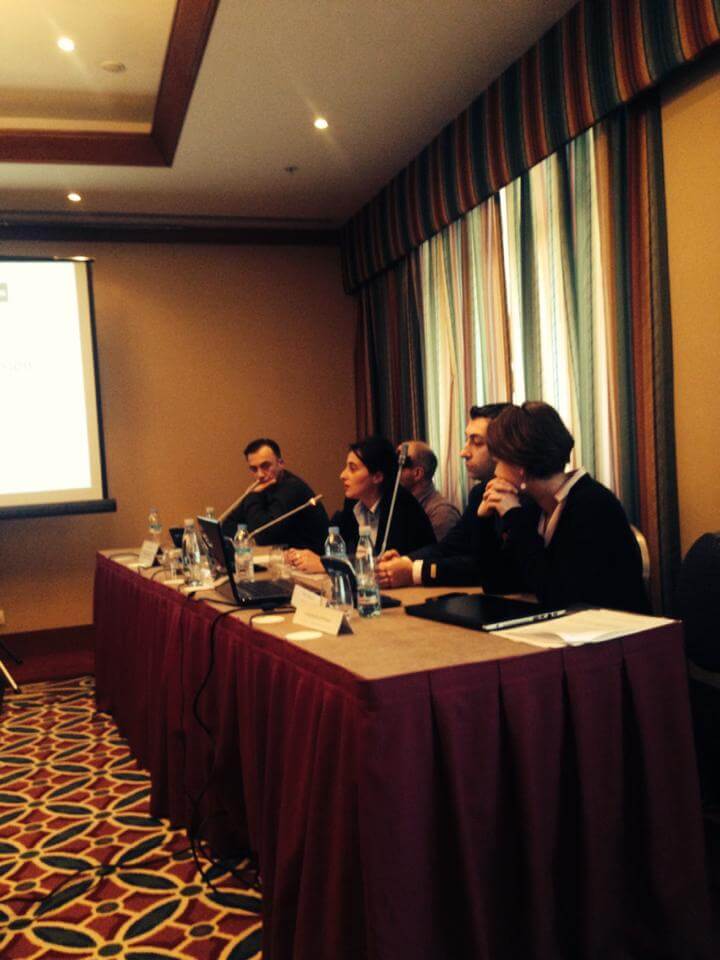The project was funded by the Global Fund and implemented by the Curatio International Foundation (CIF) in partnership with Georgian Infectious diseases, AIDS and Clinical Immunology Research Center, Public Union “Bemoni,” and association “Tanadgoma.” The project took place from February, 2008 to December 2010.
The aim of the project was to reform HIV/AIDS surveillance system in the country. The project encompassed 3 basic components, each of them embracing series of activities.
In the framework of the first (1) component of the project, Improvement of the routine HIV/AIDS Surveillance system, the HIV/AIDS surveillance system was assessed, which later allowed to develop the HIV/AIDS national surveillance plan. Qualitative and quantitative research methodology, as well as literature review have been applied for exploring international approaches and requirements for the HIV surveillance system, priorities of national policy, and legal environment; assessing information flows, technical capacities and human resources of health care facilities, public health centers, and laboratories/blood stations; and analyzing skills and drawbacks of professional staff in regards to HIV/AIDS surveillance.
Exhaustive assessment and analysis of HIV/AIDS surveillance system led to the development of the National HIV/AIDS surveillance Plan. The document incorporates clear, comprehensive, and operationally viable information serves as a guideline for policy implementation and as an instrument for advocating and mobilizing adequate financial and technical resources. It increases understanding of key concepts and models of the HIV/AIDS surveillance system and suggests ways for effective labor division among various participants and responsible parties. The National HIV/AIDS Surveillance Plan provides an opportunity to better understand financial implications of strategy alternatives and choices to recognize financial requirements and effectively mobilize resources to support sustainability of the HIV/AIDS Surveillance System.
Collaboration of the National HIV/AIDS Routine Surveillance Guidelines was the step following the elaboration of National HIV/AIDS Surveillance Plan, clarifying standard operational procedures for routine surveillance related to and without voluntary consulting and testing (VCT), consultation before and after blood capture, and transportation rules for HIV testing. HIV/AIDS Routine surveillance guideline was endorsed by the Decree of the Minister of Labor, Health and Social Affairs #217/o on 23, July 2010.
Along with endorsing guidelines, the trainings on routine HIV/AIDS surveillance requirements, registration/notification/reporting procedures were delivered to health care specialists throughout the country.
Based on the National HIV/AIDS Surveillance Plan the electronic data base for HIV/AIDS surveillance system was developed. Electronic surveillance system collects case-based data on every tested individual by epidemiological groups. The data allows and software automatically calculates all routine surveillance indicators and produces different types of analytical reports.
The second (2) component of the project foresaw elaboration of the sentinel HIV/AIDS Surveillance guidelines including registration, notification, reporting forms and standard operation procedures. Collection of data through sentinel surveillance would make it possible to provide evidence-grounded HIV/AIDS statistics and strengthen HIV/AIDS surveillance in Georgia.
The third (3) component focused on carrying out behavior surveillance survey with biomarker component among the IDUs, CSWs, Prisoners and MSM and development of standard guidelines for BSS, including standard methodology, standard tools/questioners for data collection, and standard framework for data analysis.
Newly designed HIV/AIDS surveillance system gathers information from different sources: routine surveillance, sentinel surveillance and BSS.
Follow the links to view:
Bio-Behavioral Surveillance Surveys
National HIV/AIDS Surveillance Plan (Eng.version)
National HIV/AIDS Surveillance Plan (Geo.version)
HIV/AIDS Surveillance Assessment Report (Eng.version)
HIV/AIDS Surveillance Assessment Report (Geo.version)
 On January 29, at Courtyard Marriott Hotel was held a Civil Society Forum organized by Country Coordination Mechanism. The forum was part of country dialogue process regarding HIV/AIDS and Tuberculosis issues. During the meeting, civil society representatives shared results of their work and challenges that still exists.
On January 29, at Courtyard Marriott Hotel was held a Civil Society Forum organized by Country Coordination Mechanism. The forum was part of country dialogue process regarding HIV/AIDS and Tuberculosis issues. During the meeting, civil society representatives shared results of their work and challenges that still exists.